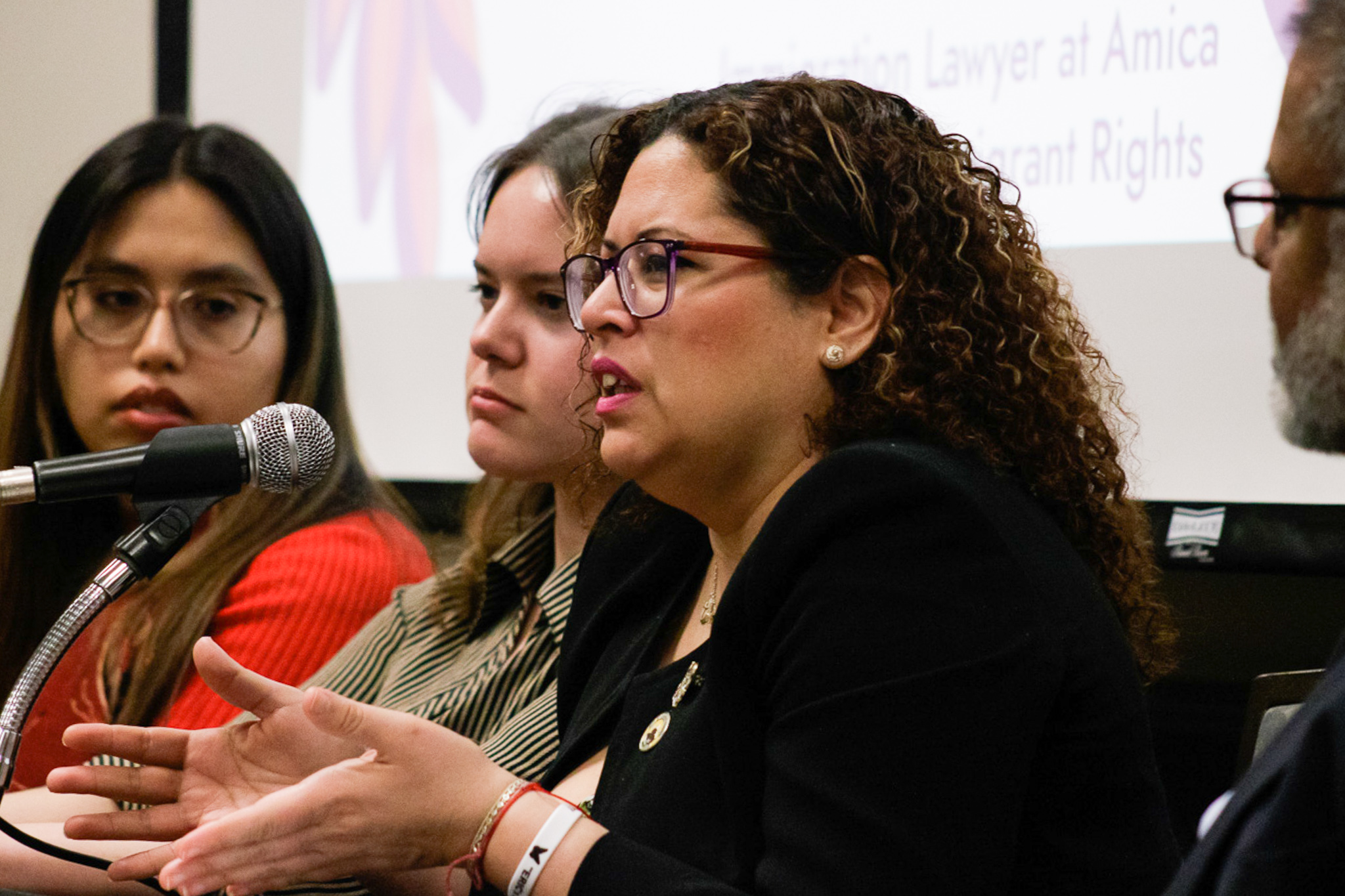Legal experts and community leaders educated University of Maryland students about immigration rights and how to interact with U.S. Immigration and Customs Enforcement at a “Know Your Rights” event on Tuesday evening.
At the event, which was held at Stamp Student Union, speakers emphasized the importance of staying informed about changing immigration policies in the country. Conversations about immigration rights and protections have increased since United States President Donald Trump signed multiple executive orders that allow ICE to enter sensitive locations, including schools.
“I know things are very scary right now,” Sabrina Surgil, a speaker at the event and attorney at the Amica Center for Immigrant Rights, told attendees. “There are a lot of things that we can do as communities and with our families to better prepare and hopefully prevent immigration enforcement.”
The Student Success Leadership Council, the Asian American Student Union and Political Latinxs United for Movement and Action in Society hosted the event.
Students’ rights concerning interactions with ICE depend on what location they encounter the officers, Surgil explained. ICE officers are allowed to enter classrooms and other public areas, Surgil said, but to enter a private space, such as a dorm room, they must obtain a judicial warrant.
[UMD SGA passes act demanding protections for undocumented, international students]
Interactions with local police are a common way that people end up in ICE custody, Surgil said. Surgil advised students to be aware of how local protections vary between different states and localities.
“This is tricky, it’s evolving,” Washington, D.C., associate judge Errol Arthur, another speaker at the event, said. “It’s very important that you know what your rights are and what the lay of the land is.”
Surgil advised people to be prepared for possible ICE encounters by gathering documents, finding attorneys and writing letters of support for those who may be detained.
Surgil also recommended students look for patterns of locations that ICE raids and at who they target based on posts on the @EROBaltimore X account. This is the account for ICE Enforcement and Removal Operations in Maryland.
“It can be really frustrating and horrifying to look at the things they’re saying, but they do publicize it,” Surgil said. “So you can keep tabs on where they tend to go.”
Mount Rainier Mayor Celina Benitez recommended that students use their phone to record any ICE interactions they witness.
Immigration paralegal Amy Rivera, who also works at the Amica Center for Immigrant Rights, spoke at Tuesday’s event and recommended that students struggling with immigration issues reach out to Graduate Student Legal Aid, which is a free resource for students at this university.
[UMD shares guidance for interactions with federal immigration enforcement officers]
Rivera urged attendees to post about immigration resources on platforms, such as Instagram, and to organize with other students to educate the community. It’s also important for students to advocate through their student government, Rivera added.
“Making sure you know who is representing you within these university proceedings that eventually vote on bills that affect your livelihood as a student, I think is really big,” Rivera said.
Attendees said the event was important because of the populations of undocumented and international students on campus.
Aeirss Prince, a junior government and politics major, said the event was necessary in order to support and inform students, especially under Trump’s administration.
“Holding an event like this is really important because it equips people, if they’re in certain situations, to know how to not only support themselves, but family members, friends and so on,” she said.
Alice Fisher, a senior Persian studies and government and politics major, knows classmates and professors in her foreign language program that are worried about their visas. She attended the event to learn how to help those in her community.
“There’s been such a heightened presence of ICE and all these different immigration enforcement groups, so it’s important that people know how to be protected,” Fisher said.



